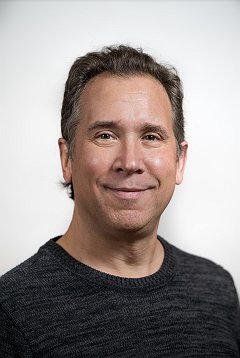The inventors of the term “computer science” meant for it to be something that was taught to everyone, to facilitate learning other subjects and to help people understand the risks of technology in their lives. The potential benefits of computing education and the risks are even greater than they predicted, but few participate in computing education. Only a privileged class understands and creates a critical part of our world. If we wanted to reach the original and more general goal, we would have to change how we teach computing — and maybe even change computing. In this talk, I review the history of “computer science” and its earlier purpose, consider the barriers to reaching universal computational literacy, then describe and demonstrate new kinds of languages, tools, and approaches for learning and teaching computing for everyone.
Mark Guzdial is a Professor in Computer Science & Engineering at the University of Michigan. He studies how people learn computing and how to improve that process, with a particular focus on students using programming to learn something other than CS. He was one of the leads on the NSF alliance Expanding Computing Education Pathways which helped US states improve and broaden their computing education. He invented and has written several books on the “Media Computation” contextualized approach to computing education. With his wife and colleague, Barbara Ericson, he received the 2010 ACM Karl V. Karlstrom Outstanding Educator award. He is an ACM Distinguished Educator and a Fellow of the ACM. His most recent book is Learner-Centered Design of Computing Education: Research on Computing for Everyone (Morgan & Claypool, 2015). He received the 2019 ACM SIGCSE Outstanding Contributions to Education award.
Wed 13 OctDisplayed time zone: Central Time (US & Canada) change
15:00 - 15:50 | Keynote 2: Mark GuzdialKeynotes | ||
15:00 50mTalk | Changing Computing To Make It "For All"Keynote Keynotes | ||
